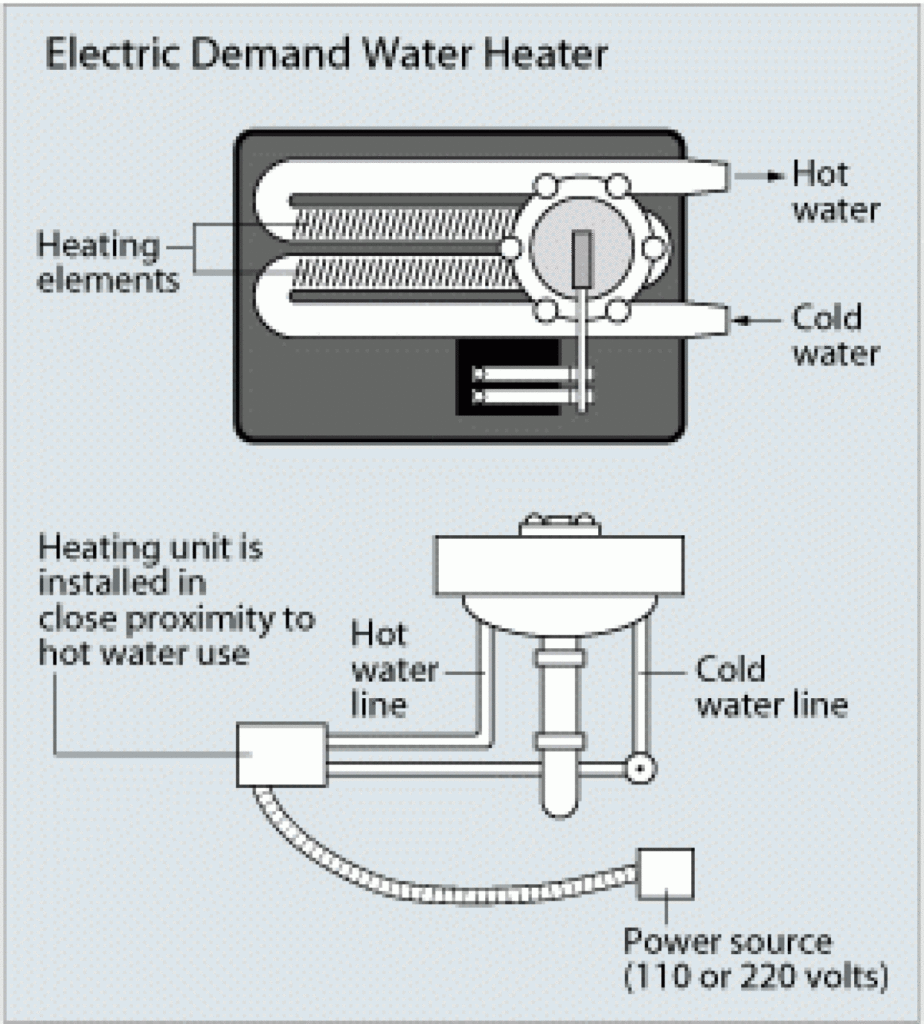Tankless vs Traditional Water Heaters is a common comparison homeowners face when choosing the best water heating solution for their needs. Factors like efficiency, convenience, and cost savings play a crucial role in the decision-making process. Tankless water heaters, also known as demand-type water heaters, have gained popularity for their energy efficiency and on-demand heating capabilities. Unlike traditional water heaters with storage tanks, these innovative systems provide hot water only when needed, helping to reduce energy consumption and lower utility bills.

How Do Tankless Water Heaters Work?
Tankless water heaters heat water directly without the need for a storage tank. When a hot water tap is turned on, cold water flows through the unit’s heating elements—either gas burners or electric coils. The system heats the water instantly, delivering a continuous supply without waiting for a storage tank to fill up.
Advantages of Tankless Water Heaters
Choosing a tankless water heater offers several benefits for homeowners looking to improve their energy efficiency and convenience:
- Energy Efficiency:
- Since tankless systems heat water on demand, they eliminate the standby energy losses associated with traditional storage water heaters. This can result in energy savings of up to 24-34% for homes that use 41 gallons or less of hot water daily.
- Endless Hot Water Supply:
- With a tankless unit, you no longer have to worry about running out of hot water during long showers or when multiple appliances are in use. As long as the unit’s capacity isn’t exceeded, hot water flows continuously.
- Space-Saving Design:
- Traditional water heaters with large storage tanks can take up significant space in basements, garages, or utility rooms. Tankless models are compact and can be installed on walls, freeing up valuable space.
- Longer Lifespan:
- On average, tankless water heaters last 20 years or more, compared to the typical lifespan of 10-15 years for conventional water heaters. With proper maintenance, these systems can provide long-term value.
- Lower Utility Bills:
- While the upfront cost of a tankless water heater may be higher, the potential savings on energy bills over time make it a cost-effective investment. Energy-efficient models may also qualify for rebates and incentives.
Potential Drawbacks to Consider
While tankless water heaters offer many advantages, it’s important to weigh potential drawbacks before making the switch:
- Higher Initial Cost:
- Tankless systems often have a higher purchase and installation cost compared to traditional water heaters. However, the long-term energy savings can offset this initial investment.
- Limited Flow Rate:
- A single tankless unit may struggle to supply hot water to multiple fixtures simultaneously, especially in larger households. Installing multiple units may be necessary to meet high-demand needs.
- Fuel Type Considerations:
- Gas-powered models require proper venting and may need a larger gas supply line, while electric models might require an upgraded electrical system to handle the load.
Is a Tankless Water Heater Right for You?
If you’re considering upgrading to a tankless water heater, here are a few factors to evaluate:
- Household Water Usage: Determine your daily hot water needs to ensure the unit can handle peak demand.
- Available Energy Source: Decide whether a gas or electric unit is the best fit for your home.
- Budget & Installation Costs: Assess both the upfront investment and potential energy savings over time.
Tankless vs. Traditional Water Heaters:
Which is Better?

"Tankless vs Traditional Water Heater"
When deciding between Tankless vs. Traditional Water Heaters, it’s important to consider factors like energy efficiency, upfront costs, and household demand. Traditional storage water heaters store and continuously heat a large volume of water, making them ideal for homes with high water usage but leading to higher energy bills due to standby heat loss. On the other hand, tankless water heaters provide hot water on demand, heating water only when needed, which improves efficiency and lowers monthly energy costs. While tankless units have a higher initial investment, they typically last longer and take up less space compared to traditional systems. Ultimately, the choice between a traditional vs. traditional water heater depends on your budget, household size, and hot water needs.
Professional Tankless Water Heater Installation by Piping Pro Plumbing
At Piping Pro Plumbing, we specialize in tankless water heater installation and maintenance for homes in Rock, Dane, and Green Counties, in Southern WI. Our experienced team can help you choose the right system based on your household needs and energy efficiency goals.
Regardless of your choice, proper installation is key to long-term performance and efficiency. Learn more about our water heater installation services and how we can help you make the right decision for your home.
Contact us today 608-279-6069 to schedule a consultation and discover the benefits of going tankless!

